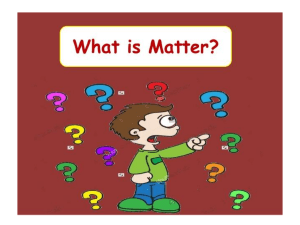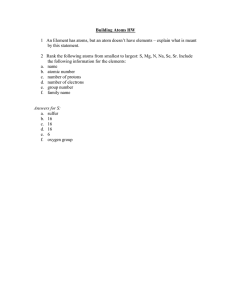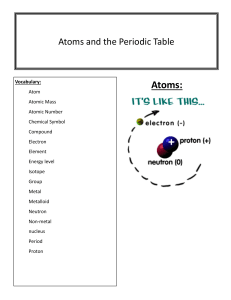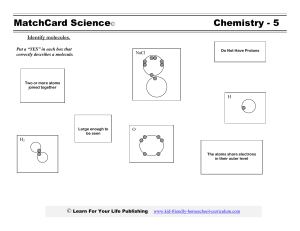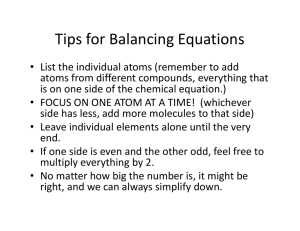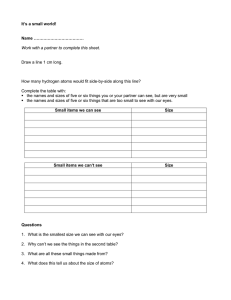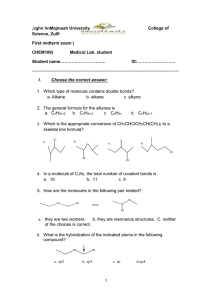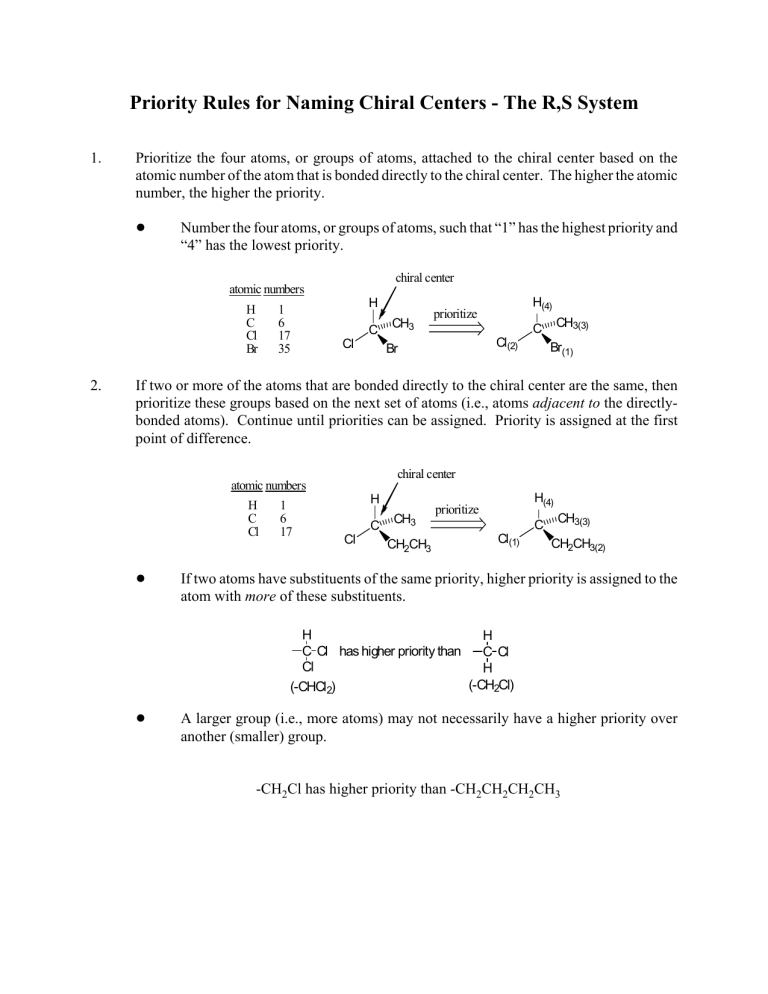
Priority Rules for Naming Chiral Centers - The R,S System 1. Prioritize the four atoms, or groups of atoms, attached to the chiral center based on the atomic number of the atom that is bonded directly to the chiral center. The higher the atomic number, the higher the priority. ! Number the four atoms, or groups of atoms, such that “1” has the highest priority and “4” has the lowest priority. chiral center atomic numbers H C Cl Br 2. 1 6 17 35 H C Cl CH3 H(4) prioritize CH3(3) C Cl(2) Br Br(1) If two or more of the atoms that are bonded directly to the chiral center are the same, then prioritize these groups based on the next set of atoms (i.e., atoms adjacent to the directlybonded atoms). Continue until priorities can be assigned. Priority is assigned at the first point of difference. chiral center atomic numbers H C Cl ! 1 6 17 H C Cl CH3 CH2CH3 H(4) prioritize C Cl(1) CH3(3) CH2CH3(2) If two atoms have substituents of the same priority, higher priority is assigned to the atom with more of these substituents. H H C Cl has higher priority than C Cl Cl H (-CH2Cl) (-CHCl2) ! A larger group (i.e., more atoms) may not necessarily have a higher priority over another (smaller) group. -CH2Cl has higher priority than -CH2CH2CH2CH3 3. Atoms participating in double/triple bonds are considered to be bonded to an equivalent number of similar “phantom” atoms by single bonds. Note: “phantom” atoms are bonded to no other atoms. C C C CH H H CH CH2 CO H C N NC C N NC Orient the molecule in space so that the lowest priority group (#4) is directed away from you. The three remaining groups then project toward you. H Cl 5. C C C CH C C O C O C H 4. C CH H(4) prioritize C CH3 Br Cl(2) C CH3(3) Br(1) Br(1) reorient C Cl(2) H(4) CH3(3) If the three groups projecting toward you are ordered from highest priority (#1) to lowest priority (#3) clockwise, then the configuration is “R”. If the three groups projecting toward you are ordered from highest priority (#1) to lowest priority (#3) counterclockwise, then the configuration is “S”. counterclockwise H(4) CH3(3) C Cl(2) Cl(2) Br (1) Br (1) H(4) C CH3(3) S conf iguration clockwise H(4) C Cl(1) CH3(3) Cl(1) CH2CH3(2) 2 CH2CH3(2) H(4) C CH3(3) R configuration
